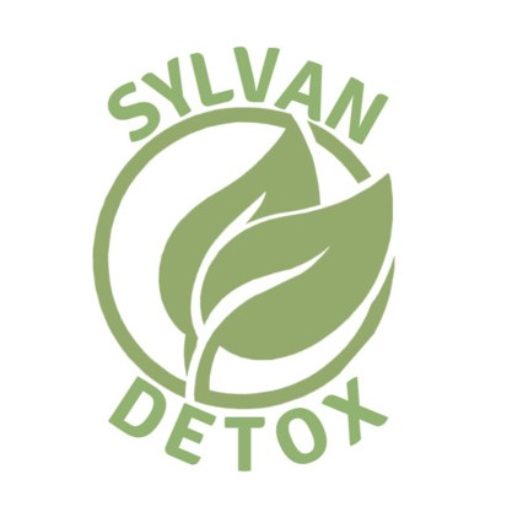A Powerful Stimulant Drug with Dangerous Impacts
Cocaine addiction can have a powerful hold over a substance abuser. This stimulant drug provides users with a sense of euphoria, extreme happiness, and an increased level of alertness. The impacts of cocaine are felt within moments of taking it whether you are snorting or smoking it through a crack cocaine format. Its effects will last for a short period of time leading substance abusers to engage in binge use leading to larger amounts being used within a given time. The high levels of binge use can lead to increased risks for substance abusers for experiencing dangerous side effects and impacts from cocaine abuse including experiencing cocaine related overdoses.
Engaging in cocaine abuse can create impacts within a person even after short term abuse. Substance abusers will experience symptoms of heart rate changes, nasal damage, impacts on mental health functioning, and changes in regular sleep patterns. As your cocaine abuse continues for longer periods of time, there are increased health risks associated with prolonged substance abuse. Long term cocaine abuse has been known to have the following impacts on substance abusers:
- Nosebleeds or permanent damage to your nasal structure
- Loss of smell
- Difficulty swallowing
- Asthma
- Respiratory infections or changes in respiratory functioning
- Increased risks for infections such as Hepatitis C, HIV, pneumonia, and other airborne diseases
Cocaine abusers will often mix substances with cocaine such as drinking alcohol or using speedballs (heroin and cocaine) to enhance the feelings of intoxication. The combination of these substances will significantly increase the risks of overdose.
Although cocaine is a highly addictive substance, there is hope for addiction recovery from this substance. With the support of an addiction treatment program, patients will have the opportunity to overcome the physical addiction and withdrawal symptoms along with beginning the healing process of addressing and healing from the root causes of your addictive behaviors. Cocaine will produce a stronger psychological dependence that will need to be addressed with the support of leading evidence based therapy methods that will help to heal from the emotions and traumas that have contributed to your cocaine addiction while gaining the tools for living a healthy, balanced lifestyle in addiction recovery.
If you or a loved one is suffering from any form of addiction or abuse, please call Sylvan Detox at (818) 308-3099.
25 Signs of Cocaine Addiction
When you are living with an active addiction to drugs or alcohol, there is a high level of shame or guilt that substance abusers will feel about their addiction. This can make it difficult for someone to admit that they have a problem and reach out for help leading them to isolate and withdraw from loved ones. Understanding the signs of a cocaine addiction will better inform you of what to look for if you are concerned about a loved one’s use of cocaine and allow you to offer support for addiction treatment.
Common signs of a cocaine addiction are:
- Unusually feeling upbeat and energetic
- Irritability
- Restlessness
- Dilated pupils
- Increased body temperature
- Elevated heart rate
- Loss of appetite
- Erratic, abnormal behavior
- Extreme mood swings or an inability to regulate emotions
- Appearing indifferent or flat when interacting with others. This is due to the impacts that cocaine abuse has within the brain
- Recurring nosebleeds
- Runny nose
- Anxiety
- Depression
- Insomnia
- Paranoia
- Experiencing financial problems that were never experienced before
- Loss of interest in activities that once brought you joy
- Decline in performance with work and school
- Changes in social circles to one that is centered around substance abuse
- Facing problems in relationships due to substance abuse
- Isolating from friends and family
- Experiencing withdrawal symptoms such as nightmares, drowsiness, fatigue, depression
- Engaging in high risk behaviors while under the influence
- Having drug cravings when not engaging in substance abuse
What to Do if You Suspect a Loved One is Addicted to Cocaine
Our loved ones mean a lot to us and we would do anything we can to make sure that they are happy and healthy. When you suspect that a loved one is addicted to cocaine, it is a troubling thing to watch as you want to help them but are not sure how. There are steps you can take to give your loved one the support and love they need to begin their healing process of addiction recovery while also taking care of your own needs.
- Take time to become educated about cocaine addiction. By providing yourself with the proper knowledge on addiction and the impacts that can have on a person addicted to drugs and more on the nature of addiction and how it progresses. Approaching your loved one from an informed, caring mindset will help your loved one feel safe and comfortable to listen to your concerns and offers for help.
- Understand the importance of offering support and not enabling your loved one. When you ask your loved one how you can help them, many in active addiction may have trouble expressing their need for treatment as their addiction still is taking over most thought processes. This will often lead to substance abusers asking their loved ones for money or other means to help continue feeding their addiction. When you offer support, stand firm in how you can provide healthy emotional support and offer resources for addiction treatment but ensure that you are setting boundaries for the extent that you are able to help.
- Avoid lecturing or shaming your loved one about their addiction. Your loved one is aware that their addiction has become a problem and will shut down if they are being lectured or ashamed about their addictive behaviors. Instead, come from a place of concern and love for them and reinforce that you will be there to support them when they are ready to begin their healing process of addiction treatment.
- Find resources for addiction treatment and drug rehabs. Come prepared for your conversation with your loved one and provide options for where they can go to access addiction treatment. Each treatment program will offer specific therapy methods and treatment plans that will be unique to the treatment center. Having options to choose from will empower your loved one that their addiction recovery is their journey to be on and they are able to make decisions for their recovery process.
- Encourage them to get help. Having open conversations with your loved ones about how you have seen addiction impact their life and how you want to see them get the help they deserve can help your loved one feel as though they are not alone in their addiction. Letting your loved one know that you are prepared to be with them every step of the way as they get the help they need by participating in addiction therapy if needed and attending the treatment center to visit may help to lower their anxiety about going to treatment and encourage them to take the help being offered.
Defeat Cocaine Addiction with Help from Sylvan Detox
At Sylvan Detox, we understand the unique nature of addiction and that it has varying impacts on each individual person that is living with an addiction. Our team takes the time to get to know each individual patient that enters our treatment facility to provide patients with individualized treatment programs that will help patients overcome the physical and psychological dependence to drugs and heal from the underlying causes of your addiction. Our comprehensive treatment programs utilize evidence based therapy methods and holistic treatments that will help you safely and effectively heal from your drug addiction and have long lasting success in addiction recovery. Call us today to have any questions answered about cocaine addiction treatment and get the expert help of our addiction therapist today.

